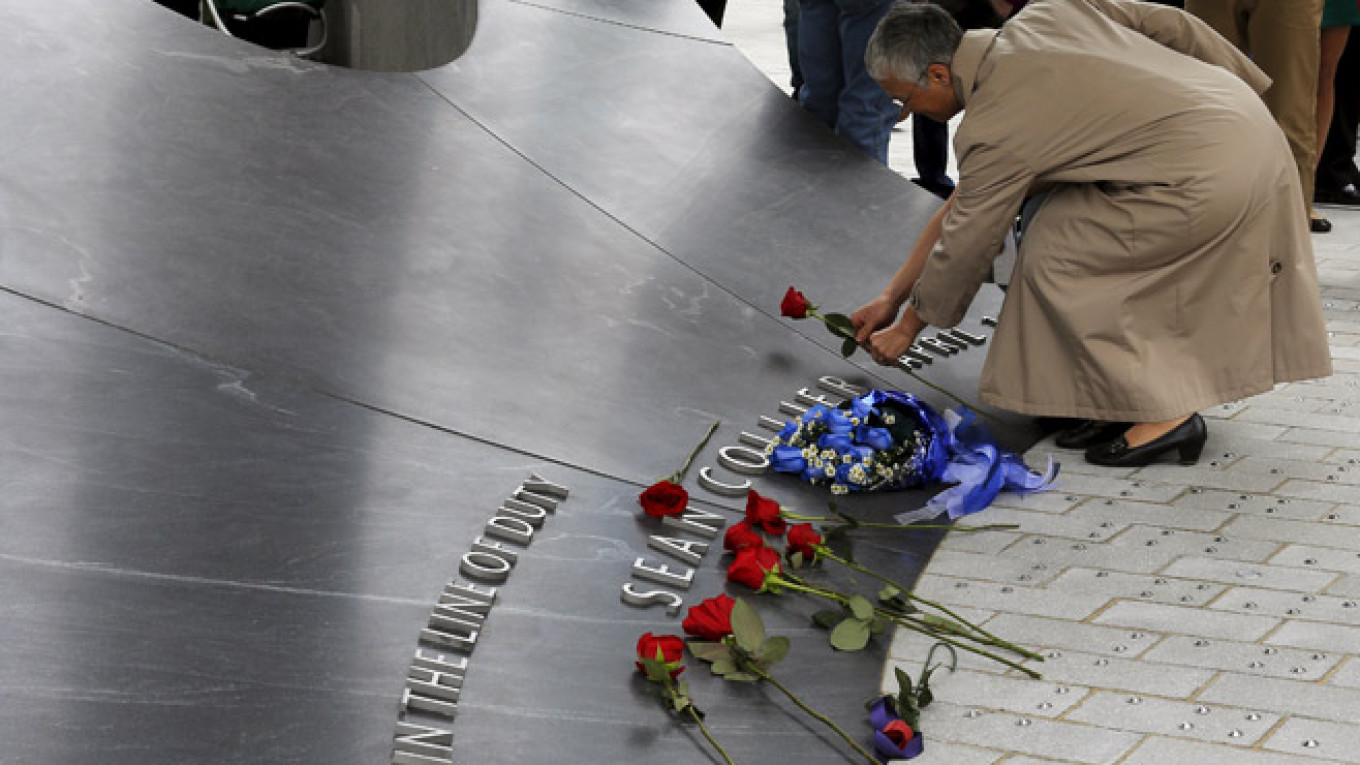Boston Marathon bomber Dzhokhar Tsarnaev is a terrorist who wanted to punish America with a deadly 2013 attack, a federal prosecutor said Wednesday as the government closed its case, urging a jury to sentence the 21-year-old to death.
Citing a note that Tsarnaev wrote while hiding in a boat, bleeding, after a gunfight with police four days after the April 15, 2013, attack, Assistant U.S. Attorney Steven Mellin said the ethnic Chechen had turned against his adopted country.
"He wrote, 'Now I don't like killing innocent people, but in this case it is allowed because America needs to be punished.' … These are the words of a terrorist who is convinced he did the right thing," Mellin said.
"He killed indiscriminately to make a political statement. … His actions have earned him a sentence of death."
Following closing statements, the same jury that last month convicted Tsarnaev of killing three people and wounding 264 in one of the highest-profile attacks on U.S. soil since Sept. 11, 2001 will begin deliberations on whether to sentence him to death by lethal injection or life in prison without possibility of release.
Mellin showed the jury photos of the bombing's immediate aftermath, with victims whose legs were blown off sitting in pools of blood, and another image of a 29-year-old restaurant manager screaming in pain before she died of her injuries.
Prosecutors and defense attorneys have painted sharply contrasting portraits of the convicted bomber, who has been a subdued, stoic presence in Boston's federal courthouse since the guilt phase of his trial began in early March.
Prosecutors have portrayed Tsarnaev, who immigrated to the United States from Russia a decade before the attack, as an adherent of al-Qaida's militant Islamist ideology, calling witnesses including people whose legs were torn off by the bombs and a trauma surgeon who worked on some of the people who died after the blasts.
The defense, meanwhile, described Tsarnaev as an adrift teenager under the spell of his 26-year-old brother, Tamerlan, who they contend was the architect and driving force behind the bombing and the murder three days later of a police officer.
"I'm not asking you to excuse him. There are no excuses," defense attorney Judith Clarke told jurors. "What I am asking you to do when I talk with you about Dzhokhar is to listen," she said, encouraging them to hold to their promise as jurors to keep an open mind and to "try to understand how the unimaginable occurred."
Tamerlan died in the chaotic hours that followed that slaying, after the gunfight with police that ended when a fleeing Dzhokhar inadvertently ran his brother over with a car.
Defense witnesses included some of his Russian family members, who remembered him as a beloved child, and a Roman Catholic nun and prominent death penalty opponent who said she believed Tsarnaev was "genuinely sorry" for the pain the attack caused.
The jury must determine whether Tsarnaev deserves to be sentenced to death or to life in prison for each of the 17 capital counts of which he was convicted. The jury need only to sentence him to death for one of those counts for him to face the possibility of execution.
Defense lawyers would likely immediately appeal a death sentence.
The jury heard from about 150 witnesses through the trials' two phases but never from Tsarnaev himself. The defendant sat quietly and showed no emotion, other than a brief moment last week when he dabbed at his eyes when his 64-year-old aunt broke down in tears on the witness stand and was unable to testify.
The death penalty remains unpopular in Massachusetts, where it is not allowed under state law, and opinion polls have showed more residents opposed the idea of putting Tsarnaev to death than support it.
Their ranks include the family of 8-year-old Martin Richard, the youngest person to die in the blasts, and the sister of Massachusetts Institute of Technology policeman Sean Collier, who was shot dead by the Tsarnaevs.
A Message from The Moscow Times:
Dear readers,
We are facing unprecedented challenges. Russia's Prosecutor General's Office has designated The Moscow Times as an "undesirable" organization, criminalizing our work and putting our staff at risk of prosecution. This follows our earlier unjust labeling as a "foreign agent."
These actions are direct attempts to silence independent journalism in Russia. The authorities claim our work "discredits the decisions of the Russian leadership." We see things differently: we strive to provide accurate, unbiased reporting on Russia.
We, the journalists of The Moscow Times, refuse to be silenced. But to continue our work, we need your help.
Your support, no matter how small, makes a world of difference. If you can, please support us monthly starting from just $2. It's quick to set up, and every contribution makes a significant impact.
By supporting The Moscow Times, you're defending open, independent journalism in the face of repression. Thank you for standing with us.
Remind me later.






